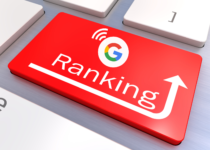Search Engine Optimization Vs Search Engine Marketing
Search Engine Optimization Vs Search Engine Marketing. Many times these two have often been confused to mean the same thing, and there has been much debate about which one of the two carries much weight.
In one scenario, search engine optimization SEO is downplayed, and in other situations, search engine marketing (paid search) is downplayed. Technically, the two cannot be used interchangeably, because they are two separate entities, even though it seems like they are cut from the same cloth. Anyway, let’s do a comparative analysis for both in other to determine their differences and more so to scale their importance.
Search Engine Optimization Vs Search Engine Marketing
What is Search Engine Optimisation (SEO)?
There are many definitions of SEO online. However, a simple definition for SEO is — Optimizing websites for search engine visibility, i.e. Google and Bing. In reality, it is not that simple, SEO can be a very rigorous task. That being said, a technical definition of SEO is — the process of applying a set of principles on your web pages and web content in order to make search engine algorithms understand what your website or web page is all about.
For example, when a search query is made on Google for the keyword “What is SEO”? Google uses web crawlers to find publicly available web pages that are relevant to the keyword phrase “what is SEO”, after the pages are crawled, only the web pages that the web crawlers deem very relevant are returned and displayed in the search result pages of Google. However, SEO isn’t just about making web crawlers understand web pages. It’s is also about making people understand web pages too. As a matter of fact, the latter has equal importance or even more important than the former.
There are four stages in the SEO process: The Optimising Stage, the Crawling Stage, the Indexing Stage, and the ranking Stage.
Search Engine Optimization Vs Search Engine Marketing :
The Optimising stage.
There are certain key elements on every web page that should be optimized when doing (on-page SEO), some of these key elements are the title, meta description, meta tags, URL structure, header tags, keyword density, images, internal links, schema markup, web page speed, https, sitemaps, and other ranking factors.
These factors affect a web page’s ranking on search engines. Thus, it is recommended that best practice should be followed when optimizing these elements.
The Crawling Stage
Billions of web pages are being crawled by search engines daily using web crawlers (also known as bots, robots or spiders) to find and retrieve web pages to index. The web crawlers follow links on web pages, gather information about these web pages and sends the information back to Google index server.
In other for web pages to be found in Google, they must be visible to the web crawlers, if the web pages are not visible to web crawlers, these web pages won’t be sent to the Google index, simply because the web crawlers couldn’t access them. Hence, why it is important to optimize the key elements mentioned in the optimizing stage.
The Indexing Stage
The information retrieved from web pages by web crawlers is sent to Google index where they undergo a ranking process. Not all web pages are indexed by Google, for example, we code some web pages not to be indexed by Google.
That being said, the web pages that are returned and displayed in the search engine result pages SERPS, are index pages of websites found by web crawlers.
Typically, the index web pages contain the page’s URL, title and meta description.
The Ranking Stage
The Google index takes the information (content) it receives from the web crawlers and uses it to rank web pages according to their relevance, authority, and importance. In other words, the web pages that are displayed on the first pages of the search result are believed to be imperative and highly relevant to the search query.
In lieu of the above, we can evidently say that SEO (On-page and off-page) plays a very important role in the way web pages are ranked by Google.
Now that we have an idea of the importance of SEO, let us look at Search Engine Marketing (SEM) and how it differentiates from SEO.
Search Engine Optimization Vs Search Engine Marketing
What is Search Engine Marketing SEM?
In a layman’s term, Search engine marketing SEM is — simply paying search engines i.e. Google and Bing to show your web pages ideally on the first pages of search engine results when a search query is made for the keyword or keyword phrase in which you paid (bided) for. Think of SEM as a form of advertising web pages on search engines solely to increase visibility or boost traffic. It is like a shortcut to ranking a website on the first pages of search engines, i.e. Google.
Pay Per Click (PPC), Cost Per Click (CPC), Cost Per Impression (CPM), Paid Search Advertising (PSA) are terms usually associated with SEM.
How does search engine marketing work?
Google AdWords and Yahoo Bing are major online advertising platforms most advertisers use to promote websites online. Apparently, this is one of the greatest strengths of SEM over SEO, as it offers advertisers the opportunity to advertise websites on the first pages of SERPs. In other words, web pages or websites that aren’t ranking on the first pages of i.e. Google, due to lack of search engine optimization (SEO), apparently can pay (bid) for their web pages or websites to be on first pages of Google.
That sounds like an easy way out, eh? It is not as easy as it seems; it is quite competitive in the sense that, advertisers bid for the same keywords and hope their ads are displayed on the first pages of the search results. Ads that have the highest bid tend to show more often than lower bid ads.
There are four stages in the SEM process:
- The ad campaign creation stage.
- The bidding and ad copy optimization stage.
- The auction stage.
- The ad ranking stage.
Paid search has 38% click-through rate.
The Ad Campaign Creation, The Bidding and Ad Copy Optimisation Stage
Advertisers create a campaign in i.e. Google AdWords, choose a bidding strategy and optimize the ad campaign (ad copy). Ideally, the ads are optimized to target a web page (landing page). The Landing pages experience impacts on the Quality Score of the ad campaign.
The Auction Stage
Search engines auctions a position repeatedly for every search made. For example, when someone searches for dog training in Google, AdWords system finds all ads that have bided for the keyword “dog training” and enters them into an auction.
The Ad Ranking Stage
Amongst the ad copy (keywords) that are entered into the auction, only those with the highest ‘Ad rank” are displayed in an order e.g. from 1 to 500. The order in which the ads are shown depends on a combination of factors i.e. bid, ad quality score, language preferences, their location, the time of day, the expected impact of extensions and other ad formats that influence how Google shows ads on search engine result pages for a particular keyword or keyword phrase.
Certainly, search engine marketing (SEM) is an easy, effective and amazingly powerful way to build traffic to websites and grow a business online. However, In order for it to be effective, it requires a good bidding strategy, optimized ad copies, optimized (SEO) landing pages which should be relevant to the ad-copies. Search Engine Optimization Vs Search Engine Marketing.
Closing Thoughts
Search Engine Optimization Vs Search Engine Marketing. Evidently, we can say one of the greatest strength of Search Engine Marketing (SEM) is that — It is an easy and faster way to be on the first pages of Google search result pages as opposed to Search Engine Optimization (SEO) which requires time, lots of efforts and most importantly patience.
Both SEO and SEM have their unique strengths and are equally important for ranking web pages (websites). Although proponents of SEO would say organic search as it relates to SEO carries more weight than SEM, similarly proponent of SEM would say paid search as it relates to SEM carries more weight than SEO.
Search engine optimization vs search engine marketing, where do I stand? Well, I choose to be indifferent. That is why we offer both SEO and SEM internet marketing services.
I am interested in hearing your opinions. Please leave your comments below. Search Engine Optimization Vs Search Engine Marketing. Which one carries more weight?


